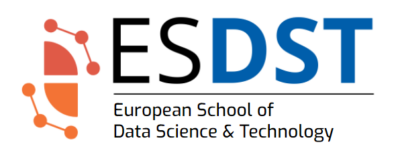Decentralized Data Revolution: Blockchain and Data Security
Jack Ma – Alibaba Founder, once said, “Blockchain technology could change our world more than people imagine; Bitcoin, however, could be a bubble.”
Even though their predictions are hit or miss, the world is becoming more tech-friendly with each passing day, with blockchain becoming a market worth USD 17.57 billion in 2023. There are certain levels of authority and control over data, mainly bifurcated as centralized and decentralized data, as it grows at a CAGR of more than 57% during 2023-2030. Blockchain is a way of storing data online with multiple parties at once and ensuring data security side-by-side. Keeping your data secure is equally important to avoid any breach of data or violation of privacy.
Illuminating the Enigma of Blockchain
A marvel of modernity posing an immutable nature of peerless design in the modern market is expounded by blockchain. Blockchain is composed of the terms “block” and “chain” combined. Each individual block comprises data and is interconnected in order to create a chain. It is a decentralized online ledger that facilitates the storage of large amounts of data. Each block is distinguished by a cryptic hash that represents the previous block, the time, and the date of the transaction. The chain would be disrupted if it were tampered with, and the precise location where the problem originated is readily identifiable. It safeguards against fraudulent activities and ensures the overall process is executed efficiently.
MBA graduates will appreciate the thorough explanation of the complex mechanisms and transformative capabilities inherent in decentralized architecture. Blockchain technology facilitates the protection of decentralized data. The management of decentralized data presents significant challenges due to the heightened vulnerability to data corruption and misuse. However, the decentralized data revolution is now more secure due to blockchain technology. Since modifications necessitate majority assent, it is impossible to document any false information. It increases the overall process’s transparency and credibility. It provides numerous benefits across various industries.
While NFTs might be hot and new in the market, blockchain technology has the real potential to build systems across many countries. In supply chain management, it helps reduce costs as the process becomes more efficient, reducing the chances of errors or tampering with data. Even medical professionals use blockchain to store crucial information about patients. One of the most prominent uses of blockchain is in cryptocurrencies, as they allow free and secure trade between parties without the intervention of a third party.
Deciphering Decentralized Data Revolution
Decentralization refers to handing out powers from a centralized source to multiple involved parties. A certain level of authority and control is given to every party involved. The decentralized data revolution is a shift in the trend of giving power to individuals rather than a centralized source. Deep within its opulently embellished pages, one will find an invaluable repository of insights that have been painstakingly curated to reveal the strategic imperatives and transformative potential that undergird this paradigm shift of unprecedented nature. Individuals have ownership of their own data. They have responsibility for their data. However, decentralization may pose a threat to security, and blockchain has come into play to tackle this problem. The term revolution is used because there is a massive shift in the way data is controlled and managed. The use of technology has brought about positive change that has made the whole procedure more transparent, reliable, and innovative.
Masayoshi Son – Softbank CEO Vision Fund Investor, said, “There’s a lot of discussion over if Bitcoin is a good thing or a bad thing, what’s the true value or is it in a bubble— honestly speaking, I don’t know.”
Protocols, Sensitivity, and ESDST
The innovative way of storing data in a decentralized manner made it more feasible, as ownership was also retained, and tampering with data was also prevented. The data is accessible to all the parties involved in a certain transaction, but the right to edit is approved only with a majority vote. Decentralization has many advantages, including privacy, as it is encrypted. The process becomes more streamlined and easier without much intervention. The dependency is reduced to a great extent, and the flow of work becomes faster.
However, there are certain protocols to be followed within the system to avoid any error, such as the Bitcoin protocol, proof of work, etc. All of them form a strict guideline to ensure the security of data and the parties involved. Not only do magnates discover a bounty of knowledge in the crucible of the decentralized data revolution, but they also receive a clarion call to action. Developed amidst a climate of innovation, this manifesto serves as evidence of the revolutionary capacity of decentralized paradigms, encouraging influential individuals to take charge of their own destinies and chart uncharted territories in a forthcoming era where data sovereignty is paramount.
We are a technical education division focusing on imparting knowledge related to data security and blockchain. The Institute’s goals are to provide data and technical education, support personal research and projects, and teach ethical boundaries. Data security is a concern in today’s world, and we make sure that learners are aware of how to handle sensitive data. In addition to subject-specific talents, ESDST considers the development of 21st-century skills when offering its curriculum. This facilitates the continued participation of online MBA graduates to witness firsthand the transformative impact of blockchain and data governance, including strategic decision-making. Assessments are the tangible outcomes offered by ESDST that may show prospective employers the potential of MBA graduates’ unraveling and unparalleled resilience.
Decentralized Data Revolution: Blockchain and Data Security
Blockchain is a convenient method that assists in decentralization. It assures that power and authority are distributed among all the parties having ownership over their data to some extent. The centralized control is reduced to a great extent. However, with this degree of freedom, there is a huge threat to data security.
Blockchain is designed in such a way that a certain set of data is shared with multiple users but in an encrypted form to ensure utmost privacy. The data is considered secure, as to make any change, it is important that the majority of people on that chain consent to the change. This is useful to professionals in various fields.
Diverse industries decentralization
Through the implementation of a strategic foresight framework, this analysis explores the diverse applications of blockchain technology in order to enhance data integrity and mitigate risks in a multitude of industries. Enumerate the diverse industries—including finance, healthcare, digital identity verification, and supply chain management—where blockchain technology augments traditional business models by introducing heightened levels of trust and transparency.
In healthcare, medical professionals keep records of patients in blockchain format as they need to store data in bulk. This ensures the safety of data without any corruption. This gives access to the data to patients and their families as the doctors. In finance, cryptocurrencies are the biggest example of blockchain. There is a reduction in cost to a great extent, and bank intervention is also minimized. Blockchain facilitates transactions with the utmost data safety, even across borders. In a huge supply chain, it becomes difficult to track the movement of goods. However, blockchain simplifies it as it becomes easy to trace the data and increase visibility, leading to increased efficiency in the overall process.
Blockchain is even used in the voting process. Voting is a delicate task and requires data security to avoid manipulation of results. Blockchain encrypts the whole process and avoids the tampering of data. This shows how the decentralized data revolution has changed the outlook on carrying out activities in various fields. It has ensured data security and reduced the extra steps of involving any third party. It is quite helpful in the long run and beneficial for all the parties with minimum cost.
As a result, MBA graduates will find “Deciphering the Decentralized Data Revolution” to be an indispensable resource, allowing them to capitalize on the revolutionary potential of blockchain technology and lay the foundation for a future where data security is not merely a legal obligation but a highly advantageous strategic advantage.
ESDST on Decentralized Data Revolution: Blockchain and Data Security
ESTD (European School of Data Science & Technology) provides the best possible combination of technical studies and a learning environment. The programs are offered in both hybrid and online delivery formats. Graduates are free to choose the method that best meets their requirements. We provide insights into the decentralized data revolution and how blockchain has improved overall data security.
MBA in Big Data Management
Our online program for MBA graduates in Big Data Management is accredited by the Accreditation Council for Business Schools and Programs (ACBSP), the International Accreditation Council for Business Education (IACBE), the United Nations Principles for Responsible Management Education (PRME), Swiss Higher Educational Institutions, the International Council for Open and Distance Education (ICDE), Norway, and the International Organization for Standardization (ISO) 9001:2015. Through practical exercises and projects utilizing relevant tools, this program would familiarize graduates with the terminology, technologies, concepts, and tools associated with big data. This would be accomplished through appropriate exposure. The ESDST MBA provides graduates with the advantage of earning a prestigious European MBA degree with a concentration in big data analytics. Courses are delivered by industry experts who possess extensive hands-on experience utilizing real-world data to resolve complex problems.
With synchronous methods, including faculty workshops, industry guest lectures, blended learning at our partner institutions, mentoring, support, and asynchronous approaches, our ESDST faculties are trained to provide recorded lectures, readings, research articles, datasets for problem-solving, wikis, and collaborative discussion boards, and evaluation reports. Both synchronous and asynchronous learning are intimately related, providing regular opportunities to engage with instructors, mentors, industry experts, and support staff. The ESDST teaching instructional method promotes collaboration and allows you to learn from mentors, colleagues, and instructors to clear your doubts while also giving you the opportunity to reflect on and apply what you have learned.
We try to teach our learners about the latest industry trends. Blockchain is one of them, as it is an online ledger that is used in various fields, including healthcare and finance. Graduates who trade in cryptocurrencies should know how they work and how blockchain is incorporated to avoid any third-party intervention.
Conclusion
In conclusion, the decentralized data revolution is quite successful because of blockchain, which provides data security. Fraud, scams, and tampering with data are nearly impossible, as any change in the blockchain requires consent from the majority. It makes the whole procedure much easier without the intervention of third parties, along with maintaining the authenticity of the data. Not only finance but also healthcare, the supply chain, and various other fields utilize blockchain as a secure medium for storing data.
Throughout this compilation, we have explored the complex relationship between blockchain technology and data security, acknowledging their mutually beneficial capacity to enhance the resilience of organizations and cultivate confidence in an age characterized by risks associated with the digital realm. ESDT imparts knowledge in all the related technical fields, including blockchain. Our educational institution places significant emphasis on instructing students in ethical protocols and the prudent management of data, given the delicate nature of data handling. Additionally, the educational institution employs a variety of teaching approaches to accommodate the various learning patterns of its graduates. The expedition has been a voyage of illumination and empowerment, encompassing decentralized consensus techniques, encryption techniques, tactical conclusions, and practical case studies.

